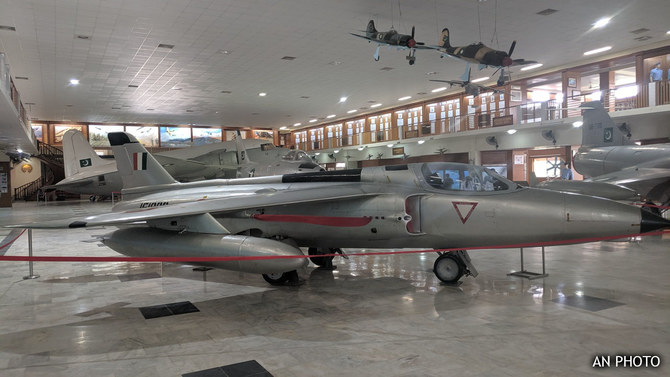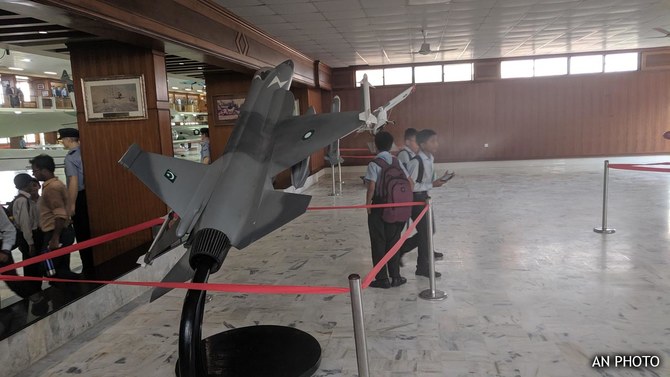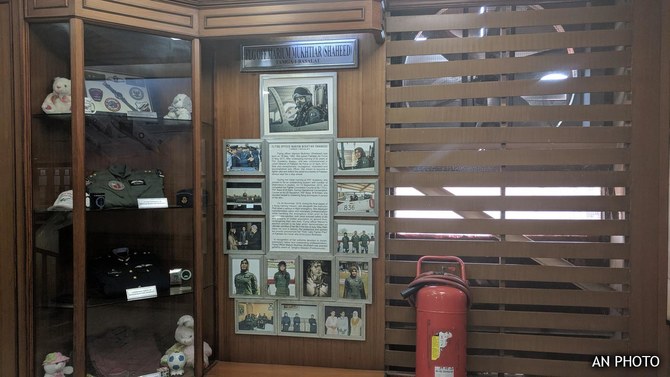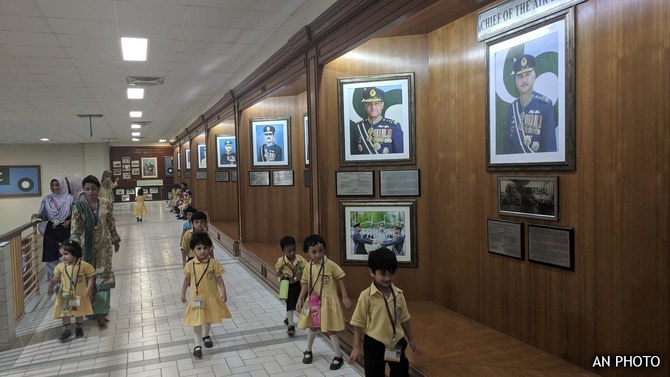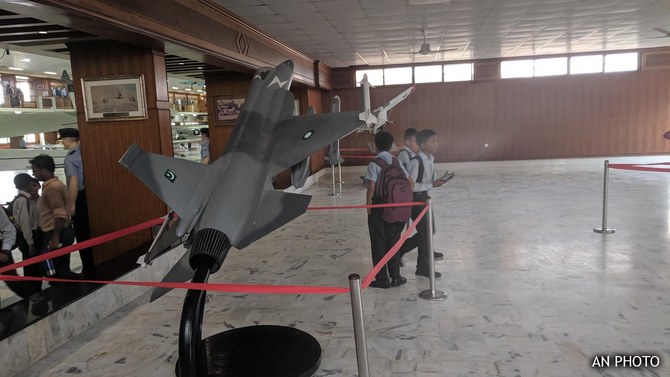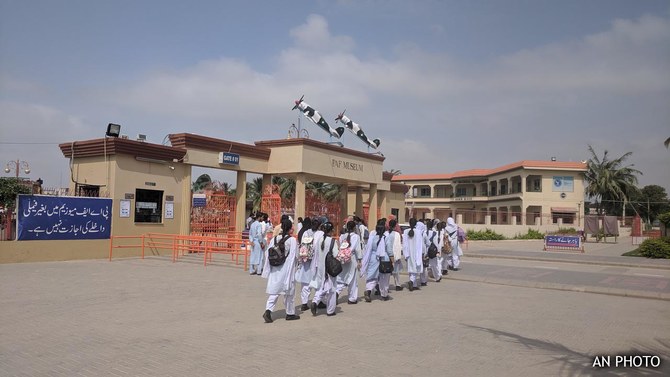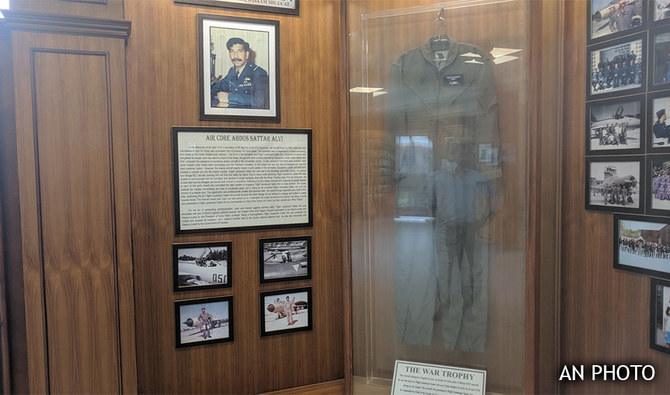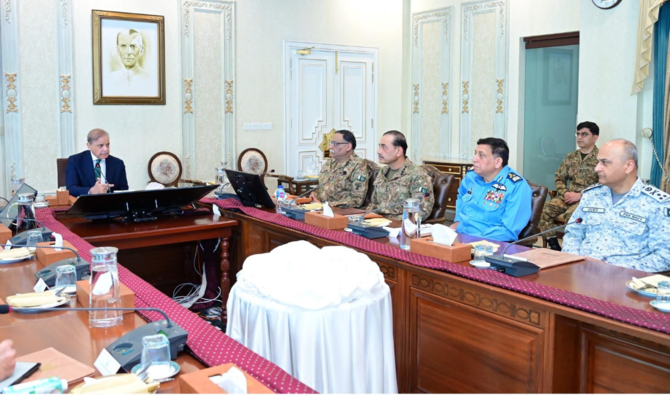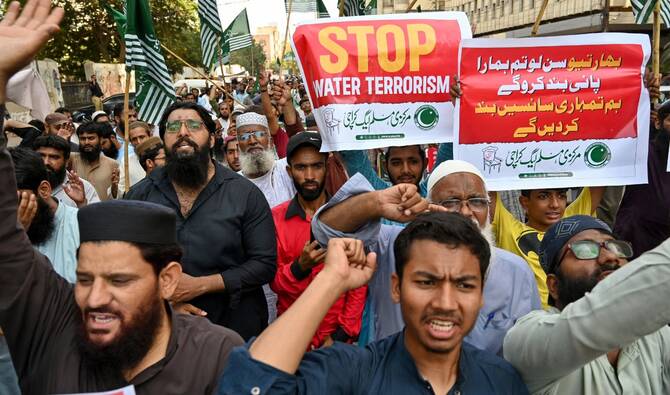KARACHI: The children furiously took notes as their teacher Tasneem Ahmed read an information board next to a FPS-6, one of several combat radars displayed at the Pakistan Air Force Museum in Karachi.

A statue of Air Commodore Muhammad Mahmood Alam, a Pakistani fighter pilot who downed nine Indian Air Force aircrafts during the India Pakistani War of 1965, stands with a F-86 aircraft at the Pakistan Airforce Museum in Karachi, Pakistan, on September 4, 2019 (AN Photo)
The children are here on a study tour and listen carefully as their teacher walks them through aircrafts, radars and mementoes of war heroes on the school study tour at the air force museum and park situated near the Karsaz Flyover on Karachi’s Shahrah-e-Faisal thoroughfare.
A majority of the aircraft, weapons and radar are displayed outside in the park but the main museum features all major fighter aircraft that have been used by the Pakistan Air Force.
“The aim of this study tour is to inform our students about their forces and the sacrifices of our heroes who lived their lives to protect this country,” Ahmed told Arab News.

A section reserved for Flying Officer Marium Mukhtiar, Pakistan’s first female combat pilot who died in a crash on duty: Photograph taken on Sept 4, 2019 (AN Photo)
Afshan Ayaz, another teacher on the tour added: “We want to instill in them a sense of attachment with their country and their forces.”
Such tours at the museum are common from November through February each year when thousands of visitors thronging to the site. Even during the off-peak season, museum officials say, the daily count of visitors is around 4,000 people on weekdays and 15,000 on the weekends.

A monument for the martyrs of the Pakistan Air Force can be seen at Karachi’s PAF museum: Photograph taken on Sept 4, 2019 (AN Photo)
The PAF museum houses a huge archival exhibition gallery in the main hangar. The centerpiece of the aircraft collection is the Viking used by Pakistan’s founding father, Muhammad Ali Jinnah, as his official plane. There is also a “war trophy” displayed in the gallery: An Indian Air Force Gnat which was captured during a conventional conflict between the two South Asian archrivals in 1965.
The museum also boasts a flying coverall that was presented to flight lieutenant Abdul Sattar Alvi by the commander-in-chief of Syrian forces after Alvi shot down an Israeli Mirage on April 26, 1974.
The gallery is divided into multiple thematic sub galleries, featuring memorabilia from different eras of PAF’s air combats.
“It was a very informative visit. We saw aircrafts and much else and our teachers explained their significance to us,” Eman Kamran, a fifth grader, told Arab News as she posed with her friends for a picture next to Jinnah’s personal aircraft.


